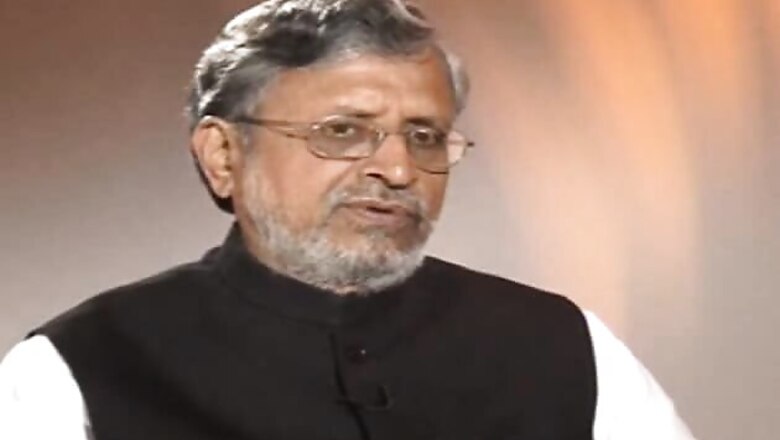
views
With just a month to go for the all-important results of the Bihar Assembly elections 2015 to be declared, there is huge anticipation over who will make it to the top. The National Democratic Alliance and the 'Mahagatbandhan' of the Janata Dal United-Rashtriya Janata Dal-Congress are in a neck-and-neck battle in the state.
While much is at stake for the Bharatiya Janata Party-led NDA, which won a massive mandate in Lok Sabha election, to prove its mettle in the state Assembly polls, it is a do or die battle for Bihar Chief Minister Nitish Kumar's Janata Dal United.
The important state leaders of NDA are:.
Sushil Kumar Modi
Party: Bharatiya Janata Party
Date of birth: January 5, 1952
Education: BSc Honors (Botany)
From being a student union leader to the deputy chief minister of the state, Sushil Kumar Modi has been a key face of the Bharatiya Janata Party in Bihar. Modi is one of the top contenders for the chief minister's post if the NDA comes to power after Bihar elections.
Modi joined active politics in 1990 and successfully contested from Patna Central Assembly seat. He was re-elected in 1995 and 2000. In 1990, he was made the chief whip of the BJP Bihar Legislature Party. From 1996 till 2004, he was the Leader of Opposition in the state Assembly.
In 2004, he became a member of Lok Sabha representing Bhagalpur constituency. He was the minister for parliamentary affairs in a short-lived Nitish Kumar government in 2000. In 2005 Bihar elections, NDA came to power and Modi was elected as the leader of Bihar BJP Legislature Party.
He subsequently resigned from the Lok Sabha and took over as the deputy chief minister of Bihar. He was given the finance portfolio along with a number of other departments. After NDA victory in 2010 Bihar elections, he continued to be the deputy chief minister of Bihar till 2013 when Chief Minister Nitish Kumar broke the JDU-BJP alliance.
A Public Interest Litigation (PIL) filed by him in the Patna High Court against RJD leader Lalu Prasad, finally led to investigations into the fodder scam. He supported the division of Bihar to create Jharkhand.
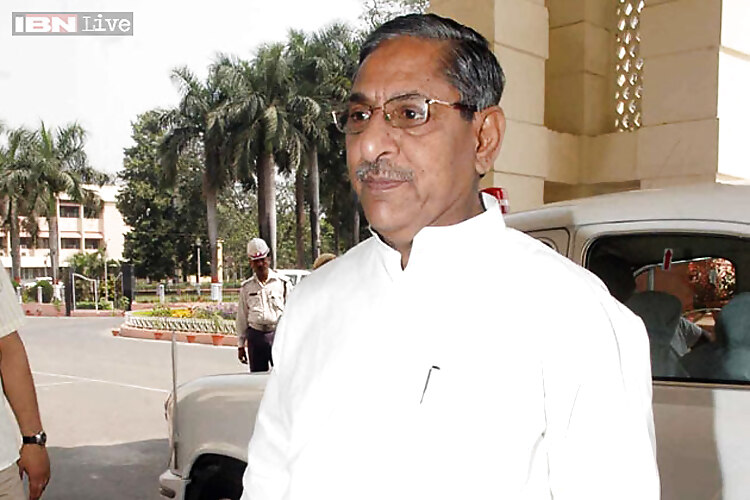
Nand Kishore Yadav
Party: BJP
Born: August 28, 1953
Education: Undergraduate
Nand Kishore Yadav started his political career as an active student leader who took part and even got jailed during the JP movement in 1970s. His first major elevation as a political leader came in 1990 when he was made the state president of the youth wing of the BJP. Five years later, he got elected as a member of legislative assembly from Patna East constituency.
Following his victory in the state polls, Yadav was made Bihar BJP president. He went on to win the Patna East seat five times in a row.
He has served as a minister in Bihar government, holding a range of portfolios such as Department of Road Construction and Tourism, and Health.
Following the split of the JDU and the BJP in 2013, Yadav was made the leader of opposition in the Bihar Assembly.
Apart from the posts in the Bihar Cabinet, Yadav was made the state convenor of the NDA in 2003, and was later also inducted in the BJP national working committee and the Central Disciplinary Committee.
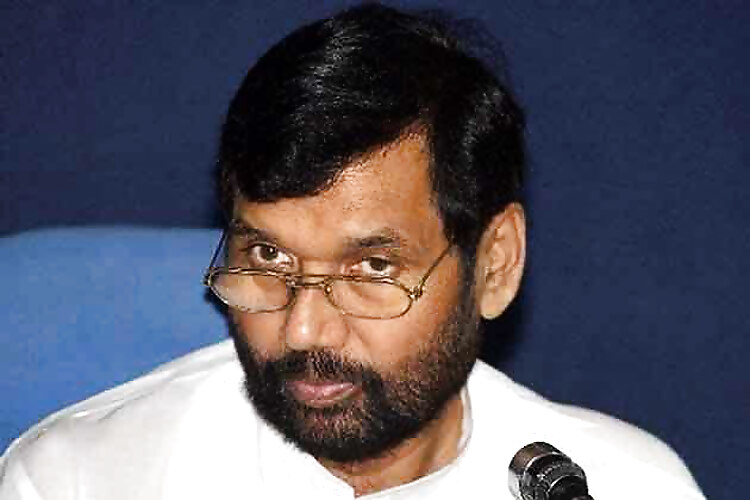
Ram Vilas Paswan
Party: Lok Janshakti Party
Born: July 5, 1946
Education: MA, BL
Ram Vilas Paswan started his political career in 1969 as a part of Samyukta Socialist Party as an MLA from the reserved constituency. Paswan followed the footsteps of Jayaprakash Narayan and was later appointed as the general secretary of Lok Dal in the year 1974.
When Emergency was declared by the Indira Gandhi regime, Paswan was arrested and he spent that period of Emergency in jail. When he was released from the jail in 1977, he immediately joined the Janata Party. Paswan made his entry into Lok Sabha in 1977 on the Janata Party ticket after he won the elections from Hajipur constituency.
In 1989, Paswan was appointed as the Minister for Labour and Welfare. In 1996, he became the Railway Minister.
Paswan formed LJP in 2000 after parting ways from Janata Dal United. LJP performed exceptionally well in the first Lok Sabha elections it contested in 2004 by winning four seats.
Under UPA government, he was appointed as Minister of Chemicals and Fertilizers and Minister of Steel.
Ahead of 2014 Lok Sabah polls, Paswan's LJP joined hands with Prime Minister Narendra Modi's BJP and won six seats in Bihar. He is appointed as the Minister of Consumer Affairs, Food and Public Distribution in the Modi Cabinet.
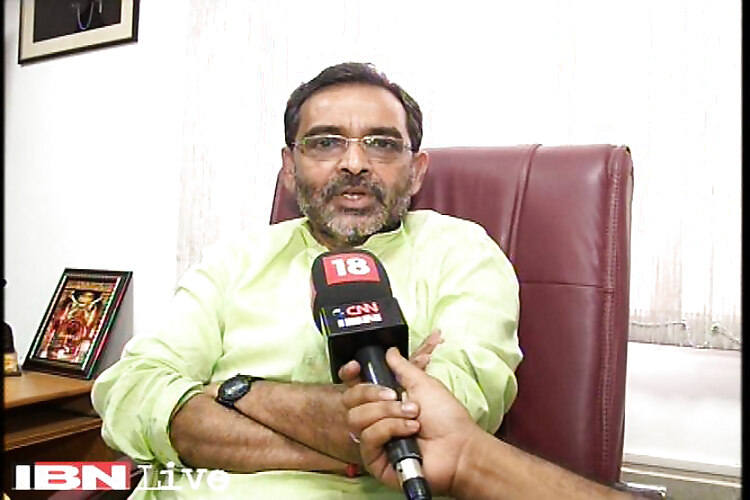
Upendra Kushwaha
Party: Rashtriya Lok Samata Party
Date of birth: February 6, 1960
Education: MA Political Science
Upendra Kushwaha started his career as a politician in 1985. He became the national general-secretary of the Yuva Janata Dal from 1988-93. He assumed more importance in the state politics when he went on to become general secretary of the Nitish Kumar-led Samata Party in 1994.
In 2000, Kushwaha got elected to the Bihar Assembly. He served as the Samata Party's Deputy Leader in the assembly till 2004. He later became the Leader of Opposition in Bihar Assembly from March 2004 till February 2005.
He became a Rajya Sabha Member in July 2010 and also became a member of Committee of Agriculture in August during that time.
Once a close ally of JDU leader Nitish Kumar, Kushwaha floated his own political outfit Rashtriya Lok Samata Party (RLSP) on March 3, 2013. In February 2014, RLSP entered into an alliance with BJP-led National Democratic Alliance.
Kushwaha is said to have played a key role in helping the BJP-led National Democratic Alliance make inroads in the large vote bank belonging to backward castes in Bihar.
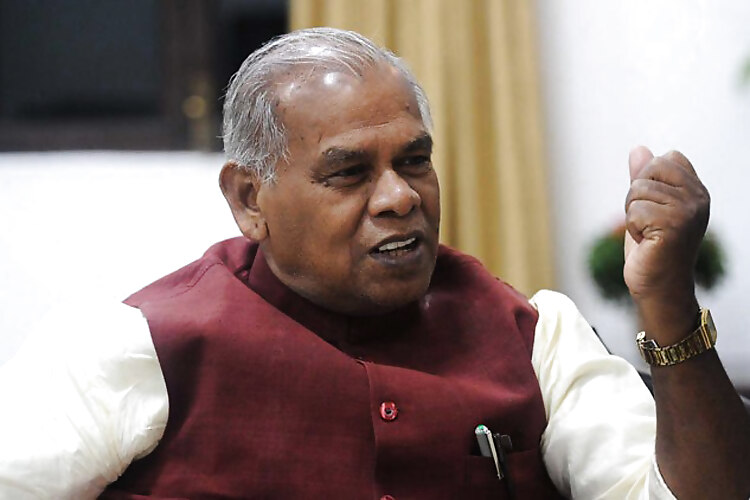
Jitan Ram Manjhi
Party: Hindustan Awam Morcha
Born: October 6, 1944
Education: Graduation from Magadh University
Though Jitan Ram Manjhi grabbed the national headlines after being appointed as the Chief Minister of Bihar in May 2014, his tryst with politics in the state began way back in 1980.
The Dalit leader began his political career with the Indian National Congress, reportedly at a time when then Prime Minister Indira Gandhi was looking for young Dalit faces. He won the Fatehpur Assembly constituency on a Congress ticket for two consecutive terms, but lost the same in 1990 Assembly elections.
This was the first occasion when Manjhi shifted his loyalty, as he joined the Janata Dal immediately after the loss in 1990, only to move out after six years as part of the Rashtriya Janata Dal, founded in 1996 by Lalu Prasad. He also served as a minister in the RJD cabinet under Lalu Prasad as well as Rabri Devi between 1996 and 2005.
But the same year, when the RJD lost the Assembly elections to the JDU, Manjhi shifted his loyalty to the latter. He went on to contest on a JDU ticket in the 2014 Lok Sabha elections in Gaya, but suffered a major loss.
Following the poll debacle of the JDU in 2014 General elections, Nitish Kumar resigned taking the moral responsibility, and appointed Manjhi as the 23rd CM of Bihar. Manjhi, initially touted as a puppet chief minister, soon became a major embarrassment for Nitish Kumar, and was asked to quit after 10 months. Manjhi refused to resign and was later expelled from the party.
Manjhi then floated his own party, Hindustan Awam Morcha, which is contesting the Assembly elections in alliance with the Bharatiya Janata Party.


















Comments
0 comment